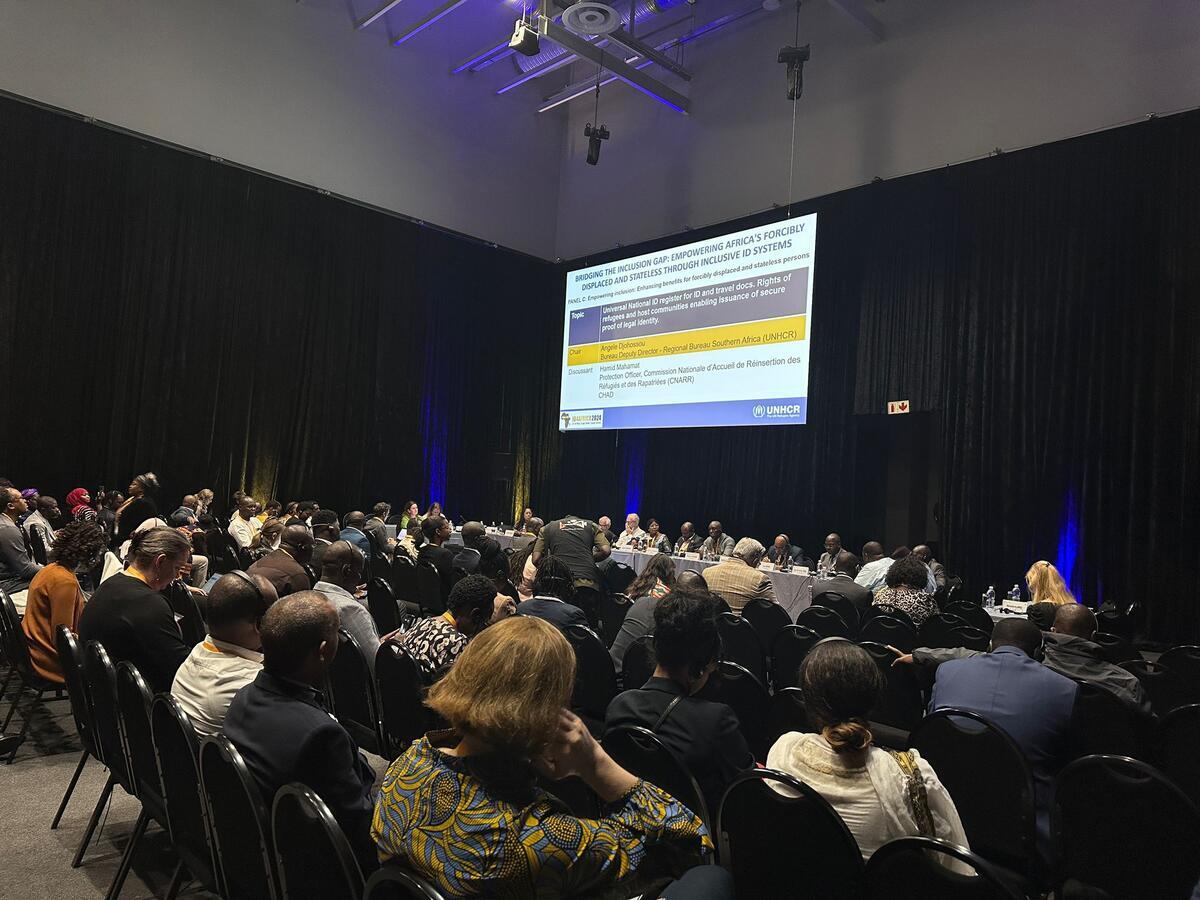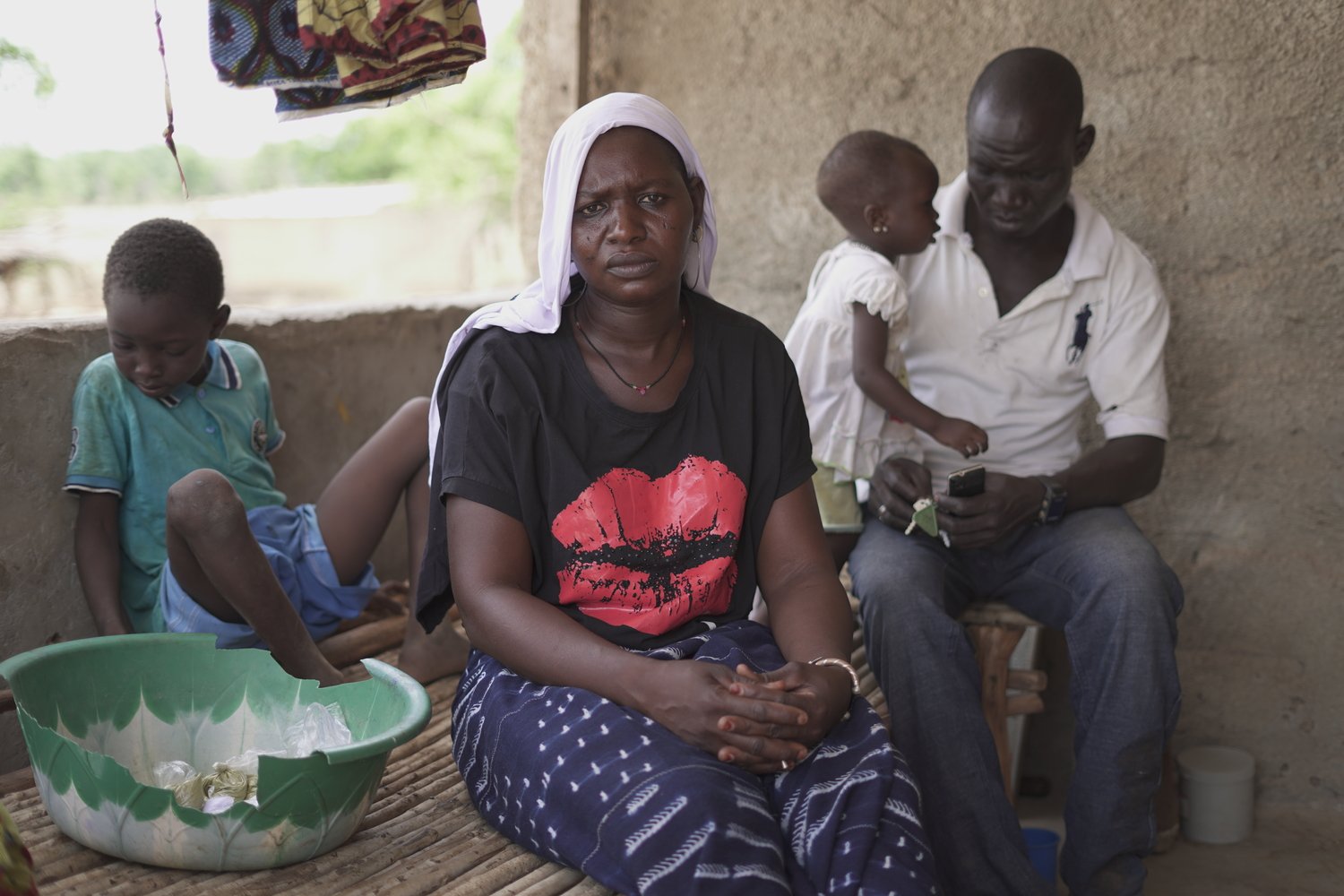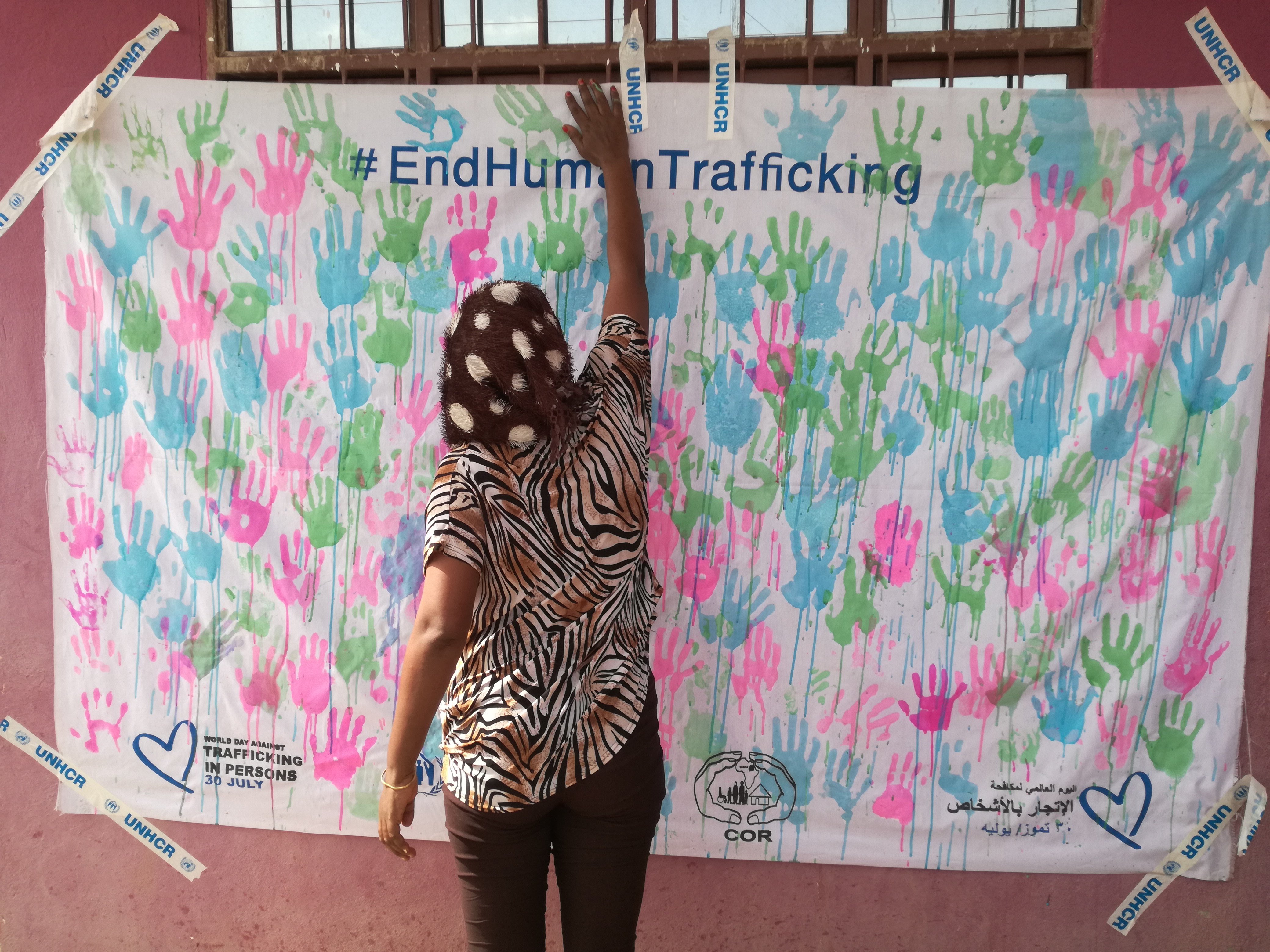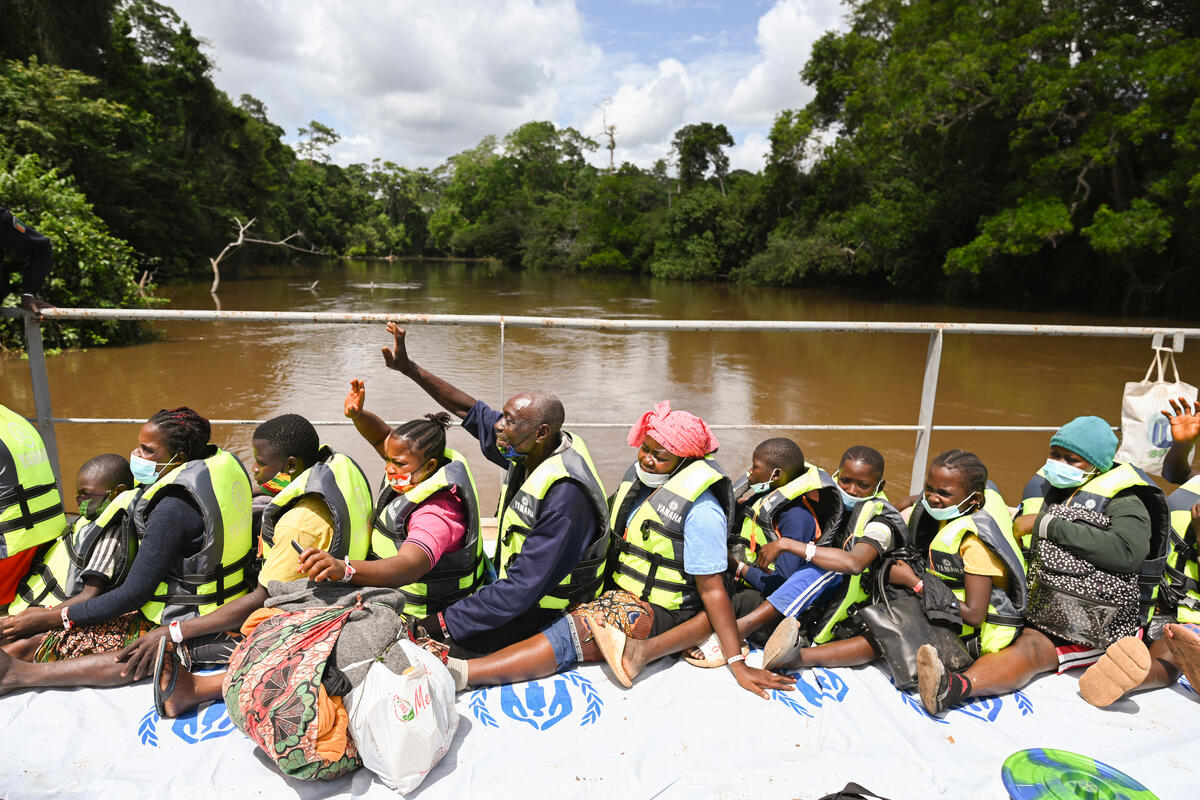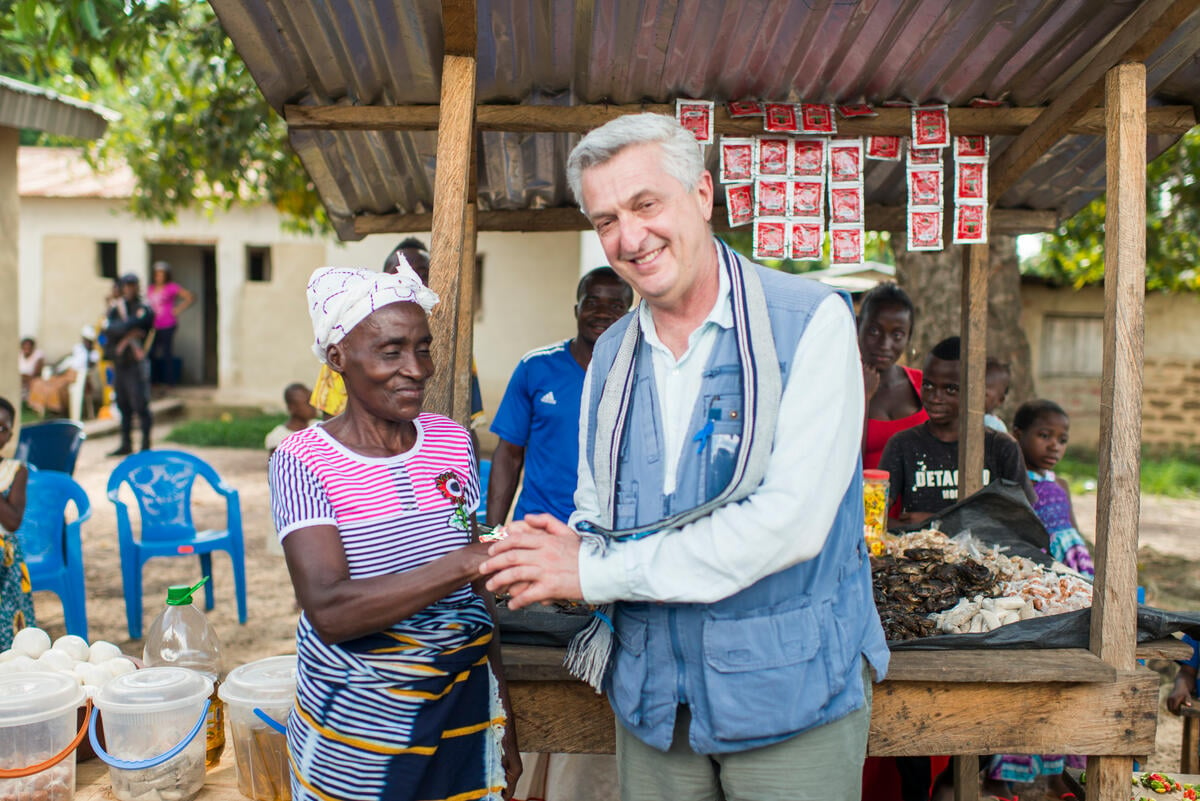Chaos in Côte d'Ivoire hits both locals and foreigners
Chaos in Côte d'Ivoire hits both locals and foreigners

ABIDJAN, Côte d'Ivoire, October 11 (UNHCR) - Displacements within and out of Côte d'Ivoire are reaching alarming proportions as the country gets mired in sporadic fighting, security sweeps and xenophobic attacks.
Hundreds of thousands of people - Ivorians, immigrants and refugees - have been uprooted since an attempted coup in the country on September 19.
In the commercial city of Abidjan alone, more than 6,000 people were rendered homeless when the Ivorian government started burning shantytowns in an attempt to root out rebels. More than 950 displaced refugees - mostly from Liberia and Sierra Leone - have since received accommodation and assistance from the UN refugee agency and its partners from non-governmental organisations.
On Tuesday, the government announced that it would temporarily and partially suspend the razing of Abidjan's shantytowns, a move that was welcomed by the UN refugee agency. This lull gives the agency more time to organise assistance for the displaced refugees, who are currently housed in overcrowded sites.
Gloria, a pregnant refugee housed in one of the transit sites, said, "We are waiting. We are waiting for news, waiting for food, waiting for the doctor, waiting so we can finally decide on our future."
George, a Liberian refugee, added, "I am worried. Even though we are safe for the time being in this house, I fear for the future. We are in a camp in the heart of the city. If things get worse, we could be easy targets as well. I need to get away."
Summing up the situation, Panos Moumtzis, deputy head of UNHCR's office in Abidjan, said, "We are very concerned about the displacement inside the country. With reports from ICRC (International Committee of the Red Cross) that over 200,000 people might be displaced in Bouaké, the chaos must be enormous there."
On Thursday, an interagency assessment team (comprising the UN Office for the Coordination of Humanitarian Affairs, the UN Children's Fund and UNHCR, among others) left for the Ivorian capital of Yamoussoukro. This mission had been repeatedly delayed due to security concerns, and it remains unclear if the team would eventually make it to Bouaké, where hundreds of thousands of Ivorians have been displaced.
"This mission is extremely important as it will give the international community the opportunity to see the problems on the ground, assess the level of displacement and needs, and plan accordingly," said UNHCR's Moumtzis.
Foreigners too, have been displaced by a recent rise in xenophobic attacks. There are reports that some 4,000 Burkina nationals working in cocoa plantations fled from Yrzon and sought shelter in a Catholic church in the western town of Diokoué. An estimated 1,000 Burkina nationals also reportedly escaped to Man in the west of the country following attacks by machete-wielding youths.
In addition to displacement within Côte d'Ivoire, warned Moumtzis, "the risk of an exodus to surrounding countries is getting larger every day. We are very worried about the humanitarian consequences".
In recent days, movements have been reported across Côte d'Ivoire's borders, mainly of nationals from Mali, Burkina Faso or Ghana returning to their countries of origin.
According a joint UN mission, nearly 2,300 people have arrived in Sikasso, Mali, since September 19. The majority are Malian nationals, while the rest are Ivorians and migrant workers from various West African countries. Most of the Ivorians are now living among the local Malian population in the border town of Zégoua and are self-supporting. None have approached UNHCR or expressed the intention to seek asylum. Most say they will return home as soon as the situation stabilises. Mali's authorities have set up a tented transit centre that can host up to 500 persons.
UNHCR Ghana has also reported that groups of people, mostly non-Ivorians, have entered the country in various places since the beginning of October. Most are travelling in chartered buses, with no asylum requests from Ivorian nationals so far. The reported arrivals included a group of 931 Malian students who arrived on October 5 in 18 buses at Elubo border post, as well as 600 nationals of Burkina Faso, Mali, Niger, Benin and Nigeria. A few dozen Ivorians and Ghanaians have also entered Ghana through the Brong Ahafo region.
Guinea also reported the return of a group of 300 Guinean students in the Nzérékoré area, while Ghana and Niger have announced plans to repatriate their nationals should they wish to return home.
Finally, UNHCR's office in Guiglo, a refugee-hosting area in south-western Côte d'Ivoire, has also recorded small-scale movements of Liberian refugees in Côte d'Ivoire returning to Liberia. About 400 Liberian refugees are reported to have headed back to Liberia's Nimba county through Gbinta, Hapleu and Dohouba border crossings. These returns seem to have slowed following a series of meetings that UNHCR staff held with the frightened Liberian refugees in refugee settlements around Guiglo.



